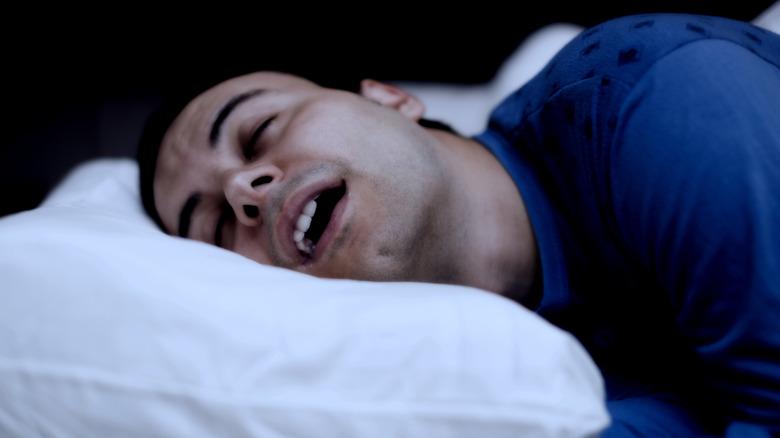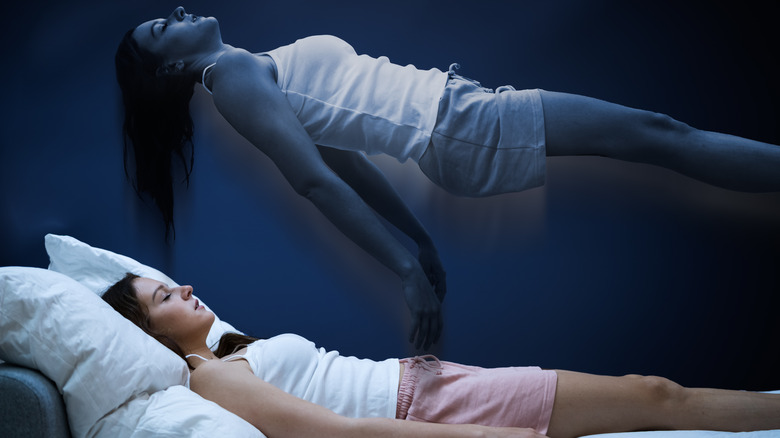Nightmares are like evil dreams, and although disturbing, they are relatively common. They can be a problem if you experience them frequently, and they cause real sleep disruptions. If you fall into this category, there may be a new treatment that can help.
We can’t precisely control dreams or nightmares, but they can affect our sleep or leave us jumping up and gasping for air. Nightmares, in particular, are dreams with negative feelings or emotions (via Mayo Clinic). In nightmare disorder (ND), frequent and upsetting nightmares cause problems with getting a good night’s sleep and performing daytime activities. These nightmares usually cause you to wake up and have trouble going back to sleep, leaving you fatigued the next day.
While the exact cause of nightmares is unknown, we know they occur during the rapid eye movement (REM) stage of sleep. REM is a sleep stage that occurs about an hour after you’ve gone to sleep when your brain activity picks back up, almost like you are awake (per Cleveland Clinic). During this time, the eyes move rapidly, heart rate, blood pressure, and breathing increase, and vivid dreams or nightmares can occur. A new study published in Current Biology believes that nightmares are related to hyperarousal and dysfunctional fear extinction, which connects them to either elevated emotional arousal during this time or trouble with the natural process of replacing fearful memories with safe ones. The focus of the study was a new proposed treatment for nightmare disorder.
Therapy that can reduce nightmares

Imagery rehearsal therapy (IRT) is the most frequently used treatment for severe nightmares, like those associated with nightmare disorder, reports Healthline. During IRT, you go over your nightmare with a therapist and write down a different outcome for the nightmare to make it less scary and, therefore, impactful. By repeatedly going over the nightmare in a conscious and safe place with a therapist, you desensitize yourself to it and thereby reduce your response, likely sleep disturbance.
In the recent study, researchers tried combining IRT with another type of therapy to reduce nightmares and increase dream positivity. Targeted memory reactivation (TMR) uses a cue connected to a procedure learned throughout the day during sleep to affect how memories are consolidated. The study took 36 volunteers with nightmare disorder (ND) and had them participate in IRT every night for two weeks. Half of them were also subjected to a sound cue again played during REM sleep. The group with the sound cue had decreased nightmares and more positive emotions during dreaming for at least the three months tested.
These results are important to the quality of life of those with severe nightmares. Since the researchers believe that nightmares are connected to emotions during REM and improper fear extinction, they expect this therapy to work for similar conditions. A combination of IRT and TMR indicates a possible treatment for nightmare disorder, PTSD, and anxiety, insomnia, and mood disorders.




